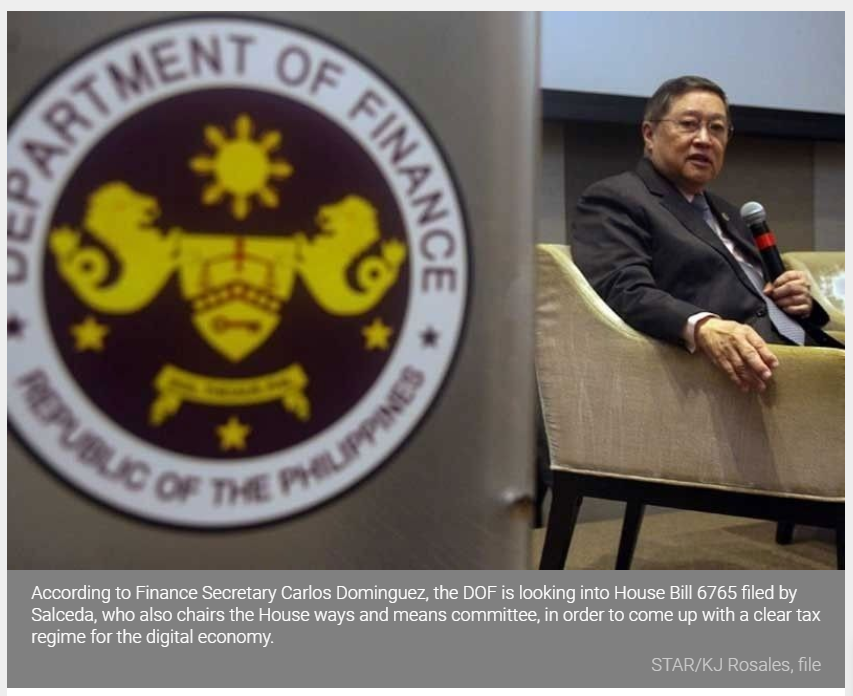Philippines: DOF studies proposal to tax digital economy
MANILA, Philippines — The Department of Finance (DOF) is studying “very carefully” Albay Rep. Joey Salceda’s proposal to tax the digital economy, a measure seen more crucial now with more Filipinos seen shifting toward online transactions due to the coronavirus disease 2019 or COVID-19 pandemic.
According to Finance Secretary Carlos Dominguez, the DOF is looking into House Bill 6765 filed by Salceda, who also chairs the House ways and means committee, in order to come up with a clear tax regime for the digital economy.
“We are studying the bill of ways and means committee chair Salceda very carefully and looking into what parts of the digital economy should be taxed,” Dominguez said.
He said the DOF is also prepared to discuss with Congress all the intricacies that could come with the imposition of taxes on digital transactions.
“Salceda’s bill deals with how we might capture digital purchases into the VAT (value-added tax) base, and how to absorb profits generated by digital companies into our corporate income tax system,” Dominguez said.
The finance chief said the DOF would need to study how to achieve these goals, considering the “transnational nature” of most digital transactions.
“There are no new taxes and no increases in existing tax rates in the bill, and Salceda has clarified that it is the tax base that he wants to expand. We are studying how the bill will fit in our tax administration system, and which enhancements in our revenue regulations would be necessary should the bill pass into law,” he said.
According to the finance chief, taxation in the digital economy is being “seriously considered” not just in the Philippines, but also in other countries.
He said Indonesia is already taking steps to bring the digital economy into its tax base, while other countries in the region, such as Singapore and Malaysia, are already imposing taxes on some digital services.
Dominguez said it is crucial for the government to set up a tax regime for the digital economy, especially with more transactions shifting online amid the pandemic.
“Ultimately, having a clear and efficient tax regime for the digital economy will be critical as more and more taxable transactions shift from traditional means of doing business to more virtual avenues, a trend accelerated by COVID-19,” Dominguez said.
Earlier, Salceda said House Bill 6765 or the digital economy taxation bill seeks to impose taxes on streaming sites and other digital services, which have not been on the BIR’s list of taxpayers.
Salceda said the bill is estimated to yield as much as P29.1 billion in additional revenues, which can be used to help the Philippines cope with the coronavirus crisis.
Source: https://www.philstar.com/business/2020/05/25/2016242/dof-studies-proposal-tax-digital-economy


 Thailand
Thailand




